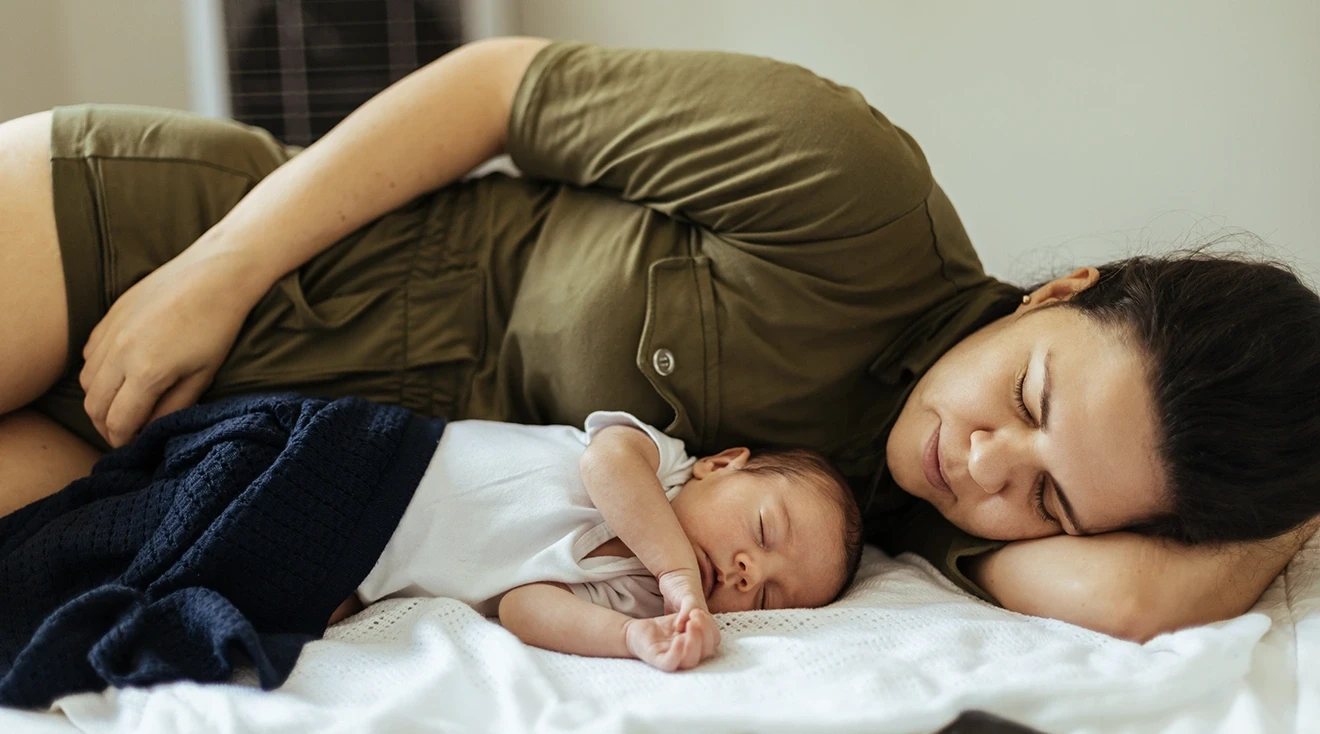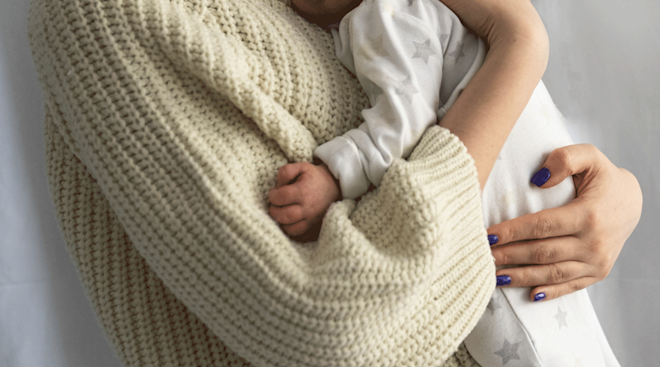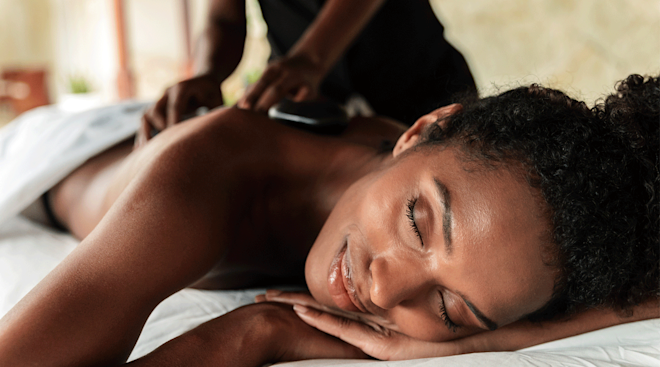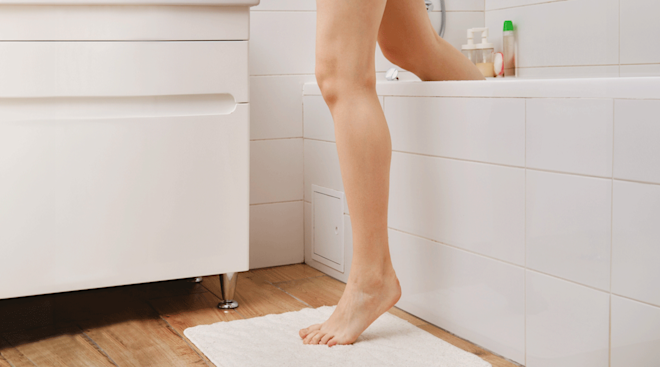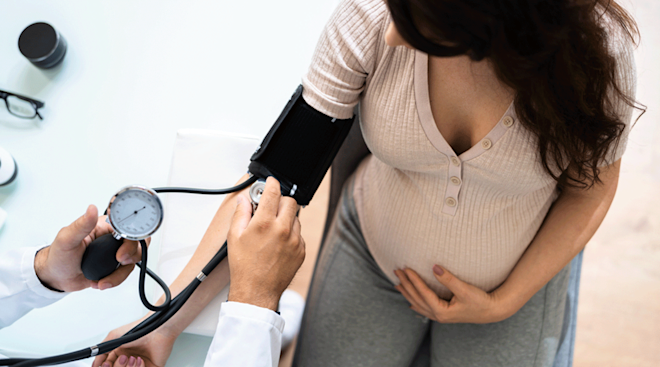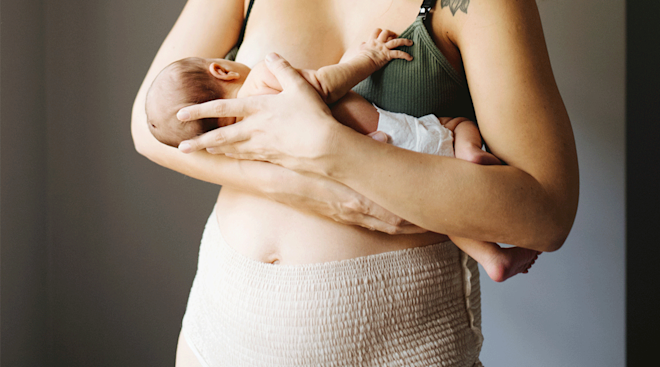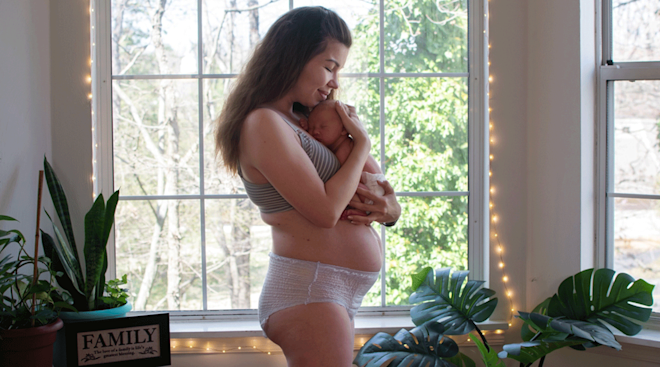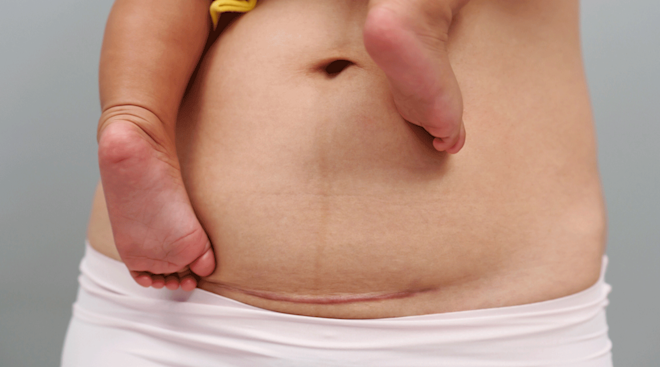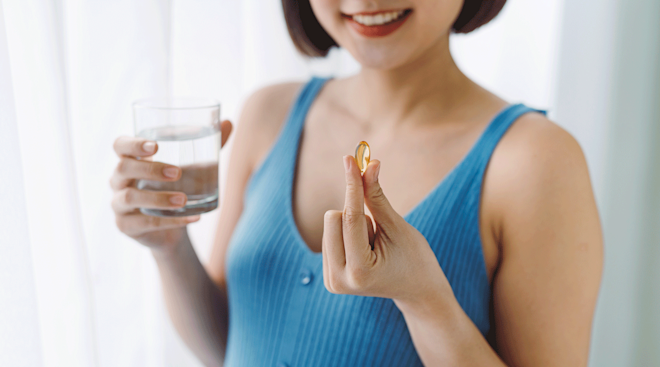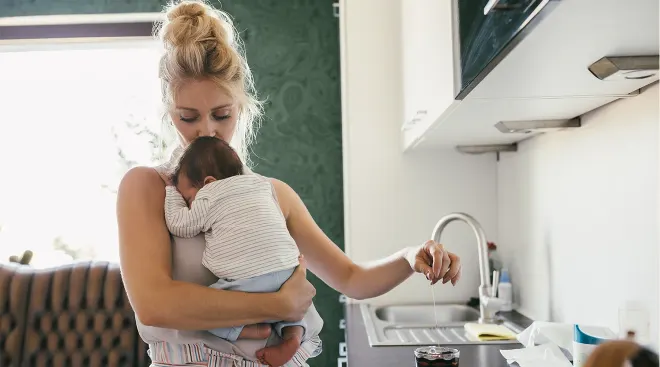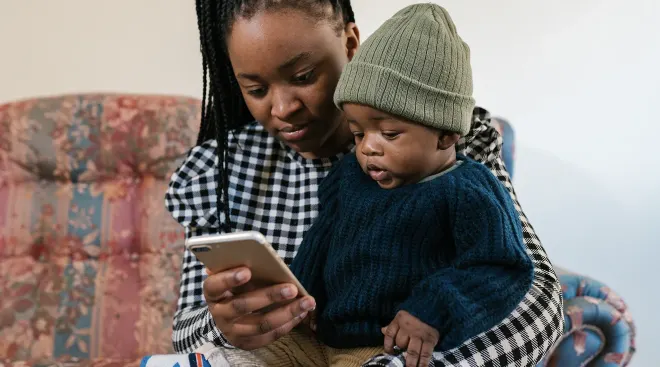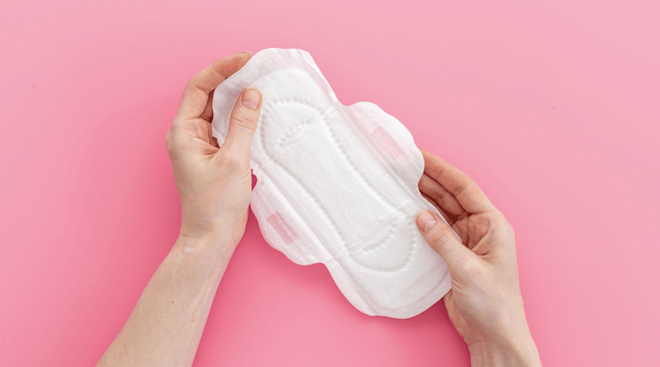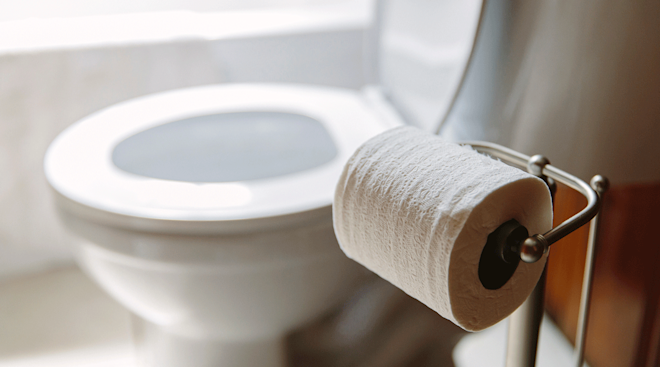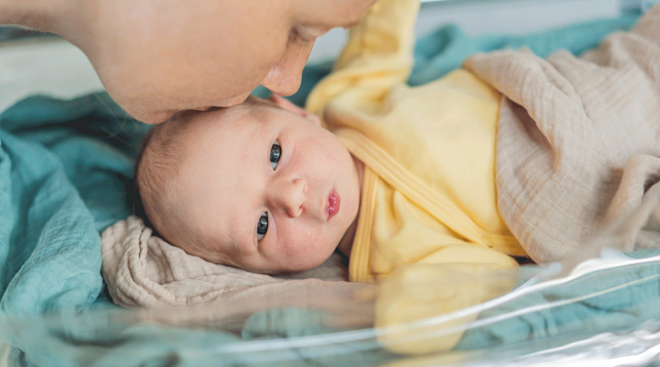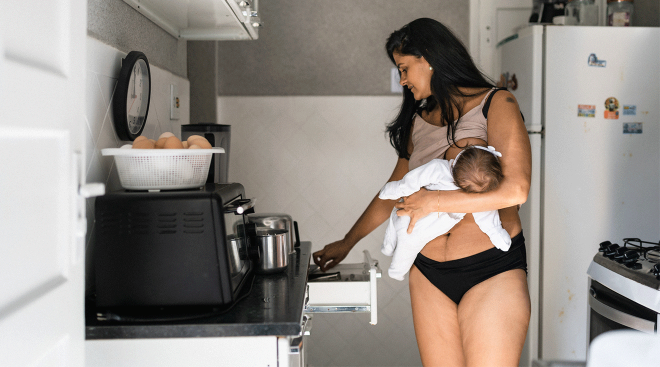Everything to Know About Postpartum Recovery After a Vaginal Birth
You spent nine+ months preparing for baby’s arrival, including stocking up on essential baby items, picking a baby name, creating a nursery and so much more. Thanks to all the planning, by the time your due date rolls around you probably feel prepared to bring your little one home. But are you ready for what happens to your body after childbirth? Because let’s be honest: If you gave birth vaginally, your vagina, perineum and rectum are going to need some serious TLC during your postpartum recovery. Have no fear: We checked in with experts and new moms to bring you an insider’s guide to postpartum care following a vaginal birth.
Wondering how long the postpartum recovery timeline is for vaginal births? Generally, your body will heal in six to eight weeks after delivery, says Ithamar Turenne, RN, CBC, a postpartum nurse with Oula. (The postpartum recovery timeline for c-sections will vary slightly—learn more about c-section recovery here). However, while the healing process typically takes up to eight weeks, some of the physical side effects of pregnancy and birth (like an ab separation or postpartum hair loss) can linger for months after delivery, and it can take as long to shed the baby weight, if that’s your goal. Not to mention, it can take up to three months (or beyond)—referred to as the fourth trimester—to get accustomed to life with baby.
Wondering if you can speed up postpartum recovery? It’s important to take it slow and refrain from returning to regular activities, like sex and exercise, until cleared by your healthcare provider. While you’ll need to give your body enough time to heal, Turenne says “maintaining good perineal hygiene” and sticking to your pain regimen of Tylenol and/or Advil can help. (Keep reading for more tips on how to take care of your vagina after giving birth.)
Each person’s physical postpartum recovery will look different, as it’s largely dependent on their individual birth experience. If you pushed for three hours or tore while birthing an 11-pound baby, you’re likely going to have a longer postpartum recovery than if you pushed for 30 minutes and your perineum stayed intact. But regardless of how your labor and delivery went, “the postpartum period can be pretty rough,” Jaime Knopman, MD, an ob-gyn in New York City and co-founder of Truly-MD.com, says. “Pain, bleeding and no sleep are not the best combo. Even if you didn’t tear, you still pushed, and something pretty big came out of your vagina (a baby!), so simple things like sitting and urinating can be sort of a big deal.” Here’s what you can generally expect during postpartum healing.
Vaginal bleeding and discharge
During postpartum recovery, you’ll have vaginal discharge, called lochia, for up to six weeks after delivery. It’s normal to spot a heavy flow of bright red blood in the beginning as your body works to get rid of the blood and tissue that was inside the uterus. Postpartum bleeding can be compared to a heavy period, says Susan Bliss, MD, an ob-gyn at Carolinas Medical Center in Charlotte, North Carolina. This is why super-absorbent maxi pads (yes, like the kind you wore in junior high) will become your new best friend. Let your doctor know if you’re soaking through more than a pad an hour or passing blood clots bigger than the size of a plum tomato.
The discharge will gradually taper off and can vary in color, from red, pink, brown, yellow, white to even green. You might detect an odor, but it shouldn’t be foul-smelling, says William Schweizer, MD, OB medical director for the department of obstetrics and gynecology at NYU Langone Medical Center in New York City. Call your doctor if you pick up a pungent scent or come down with a fever, as these may be signs of an infection.
Wondering when you’ll start ovulating again after childbirth? According to the American College of Obstetricians and Gynecologists (ACOG), if you’re breastfeeding it could take up to six months, and if you’re not it could take up to a few weeks after childbirth. Remember, though, that you’ll start ovulating prior to getting your first menstrual period, so it’s important to speak with your ob-gyn about postpartum birth control.
Vaginal itching, soreness and swelling
General vaginal soreness and swelling are a standard part of postpartum recovery—after all, “the area saw a huge increase in blood flow and fluid,” Knopman explains, and childbirth is pretty rough on your vaginal tissue. Tears can also lead to greater blood flow and swelling. Discomfort usually lessens within four to six weeks, Knopman says, although that timeline can be longer if you experienced severe tearing. Vaginal stitches after birth or an episiotomy can be sore at first and then a little itchy, and they usually dissolve within 7 to 10 days.
Trouble going to the bathroom
It’s not uncommon to have constipation or trouble urinating shortly after giving birth. The tissue around your bladder and urethra may be swollen or bruised, which can make peeing difficult for the next few weeks. And if you received pain-relieving narcotics (like an epidural) in the hospital, they could slow down your bowel movements, Schweizer says. Constipation can also be caused by iron supplements prescribed to get your blood count up to normal, he adds, or if you’re not drinking enough fluids while breastfeeding and become dehydrated. It’ll pass (pun intended), but in the meantime be sure to drink plenty of water and eat high-fiber foods, and let your doctor know if you haven’t had a bowel movement in two to three days.
Trouble making it to the bathroom
On the flip side, many women struggle with urinary incontinence during postpartum healing. Childbirth can compress the pelvic nerves and weaken the pelvic floor muscles, which help control the bladder. Plus, “the pressure from the uterus can change the angle of the urethra and cause loss of urine,” Knopman explains. So as embarrassing as it may seem, a little leakage when you cough, sneeze, laugh or lift heavy objects isn’t out of the ordinary. As your body heals, urinary incontinence should resolve itself, usually by the six-week mark.
Hemorrhoids
Even if you managed to avoid hemorrhoids during pregnancy, the strain of pushing during delivery may lead to a swollen vein in or around the anus. Postpartum hemorrhoids can be itchy and painful but should shrink within six weeks after birth (although they may never completely go away). Luckily, there’s lots you can do to find some relief—more on this below.
Contractions
Thought those contractions were behind you? Not quite—you may experience small contractions, called afterpains, for several days after delivery, particularly when you breastfeed (nursing releases a natural chemical that causes your uterus to tighten). Don’t let that freak you out. “This is a good thing,” Bliss says; what you’re feeling is your uterus shrinking back to its normal size and shape. Incredibly, your uterus weighs about 2.5 pounds right after birth, but just six weeks later it’ll weigh a mere 2 ounces.
Clearly, your body has a lot of healing to do after birth. Thankfully, when it comes to postpartum care, there are plenty of tips and tricks to help take care of your vagina after giving birth. Here, a rundown of the top postpartum recovery tips from medical experts and women who’ve been through it.
1. Stock up on hospital handouts
You’ll definitely want to grab some freebies from your postpartum recovery room before checking out of the hospital. “Get as many of the hospital pads as possible,” The Bump user Princessn6 urges. “They’re better than anything you can get in the store.” Consider stocking up on the hospital’s mesh panties too. (Don’t be shy—ask your nurse for extras.) No, they’re not sexy, but when you’re bleeding for weeks on end, disposable panties rock. And don’t forget your peri bottle (a squirt bottle for rinsing the vulva): It’ll keep you feeling clean and help ease any stinging sensation you experience around your vaginal stitches after birth when you pee. To ensure you have all the essentials you need for postpartum healing, check out this list or consider purchasing a postpartum recovery kit.
2. Ice any swelling
Your vagina and vulva will likely have some swelling following childbirth, but applying ice to the region is an easy, effective way to get relief in the first 24 hours of postpartum recovery, Schweizer says. And moms agree: “The nurses at the hospital brought me newborn diapers that they had packed with ice. It helped a lot!” The Bump reader Kat28655 says.
3. Soak your bottom
After those first 24 hours, ice ceases to be the best way to reduce swelling, Schweizer says. Instead, he recommends making a sitz bath part of your postpartum care routine: Just fill the tub with a few inches of tepid water and hang out there for about 20 minutes, three to four times a day. “It decreases swelling, cleans the area so there’s less risk of infection and generally soothes discomfort,” he says. Sitz baths are also a great remedy for painful, itchy hemorrhoids and vaginal tears.
4. Witch hazel it up
Another way to find sweet relief from uncomfortable hemorrhoids? Witch hazel, an herbal remedy with tannins and oils that can help reduce inflammation. “I’ve been rolling up those witch hazel pads and sticking them between my [butt] cheeks,” The Bump user Taprehoda says. “It gives me hours of relief.” You can also line your pad with them for maximum coverage.
5. Avoid vaginal irritants
Between hemorrhoids, vaginal tears and any vaginal stitches after birth, you’ll want to avoid anything that exacerbates postpartum itching or irritation. Turenne recommends staying away from vaginal products containing fragrances and harsh detergents, as well as maxi pads containing plastics and synthetic fibers. Instead, choose organic pads. Another tip? Don’t over-wash down there. “Postpartum bleeding causes some people to wash their vulvas more frequently, which can cause more dryness and itching,” Turenne says.
6. Don’t be scared to poop
Since blood is diverted from your digestive system during labor, it can take a couple of days for you to get back into a normal rhythm. But when your body is ready, don’t hold back: Yes, your first postpartum bowel movement might hurt a bit, but not as much as you might think. “Like I tell my 4-year-old, if you hold it in, it just gets bigger,” Bliss says. If you need a little help to get things going, try eating prunes, doing some gentle yoga stretches and taking laxatives. “Mamas, take the stool softener that the hospital offers!” The Bump reader jwoods6056 urges.
7. Don’t use douching products
As mentioned before, the vagina cleans itself following childbirth. ACOG doesn’t recommend douching, as this disrupts the vagina’s natural ability to self-clean. “Your vagina is designed to naturally maintain the right pH balance, which is more on the acidic side. It’s filled with healthy bacteria that help keep infections at bay and prevent irritations,” Turenne says. “[Douching] can upset your pH balance and increase your risk of developing infections.”
8. Do your Kegels
Struggling with bladder control post-baby? Doing Kegel exercises can help strengthen your pelvic floor muscles. “This helps maintain urinary continence and function of your anal sphincter,” Bliss says. Bonus: Kegels can also increase vaginal muscle tone to enhance sexual pleasure.
9. Invest in some lube
It’s true that your vagina will never be exactly the same as it was before baby, but that isn’t a bad thing and won’t affect your sex life in the ways you might think. Sure, it’ll take some time for things to feel “normal” again, but when you’re ready for sex after baby—and you’ve held off for the recommended six weeks—feel empowered to go for it. Just don’t forget lubrication! You’re low on estrogen after delivery (and while you’re breastfeeding), causing a thinning of your vaginal mucosa, which can lead to dryness. All this can make sex a little less than comfortable, but investing in some lube can be a lifesaver.
While you might be primarily focused on your physical postpartum recovery, it’s equally important to pay attention to your mental health postpartum. The weeks following baby’s birth can be challenging and emotional, filled with feelings of joy, uncertainty, anxiety and even sadness. Plus, up to 20 percent of women develop postpartum depression. After all, not only are you still physically healing, but you’re also taking care of baby and operating on very little sleep.
To prioritize your mental health during the postpartum healing process, Turenne recommends coming up with a postpartum plan and asking for help. “When a family has a readily accessible resource available, it helps to eliminate the need to go searching during a crucial time,” she says. Along with a postpartum plan, remember to rest when you can and listen to your body. “Whether it’s your first or sixth birth, listening to your new body is essential to its recovery, and being gentle with yourself is key,” she adds. “There is an adjustment to your new normal, including your appearance, sexual desires (or lack thereof) and identity as someone’s parent.”
While postpartum recovery can be tough, remember you’re not in this alone. This too shall pass, and if you find yourself in need of support, reach out to your loved ones, your healthcare provider or a mental health professional.
Expert bios:
Jaime Knopman, MD, FACOG, is an ob-gyn and reproductive endocrinologist in New York City and co-founder of Truly-MD.com. She currently serves as the director of fertility preservation for CCRM New York. Knopman earned her medical degree from Mount Sinai School of Medicine in 2005 and completed her residency at NYU Medical Center.
Susan Bliss, MD, is an ob-gyn at Atrium Health Carolinas Medical Center in Charlotte, North Carolina. She has over 20 years of experience and received her medical degree from Rutgers New Jersey Medical School.
William Schweizer, MD, is a clinical associate professor and the OB medical director for the department of obstetrics and gynecology at NYU Langone Medical Center in New York City. He earned his medical degree from SUNY-Stony Brook in 1983.
Ithamar Turenne, RN, CBC, is a postpartum nurse with maternity care startup Oula. She has over a decade of experience and completed her master’s degree in nursing from Columbia University.
Please note: The Bump and the materials and information it contains are not intended to, and do not constitute, medical or other health advice or diagnosis and should not be used as such. You should always consult with a qualified physician or health professional about your specific circumstances.
Plus, more from The Bump:
Navigate forward to interact with the calendar and select a date. Press the question mark key to get the keyboard shortcuts for changing dates.

































